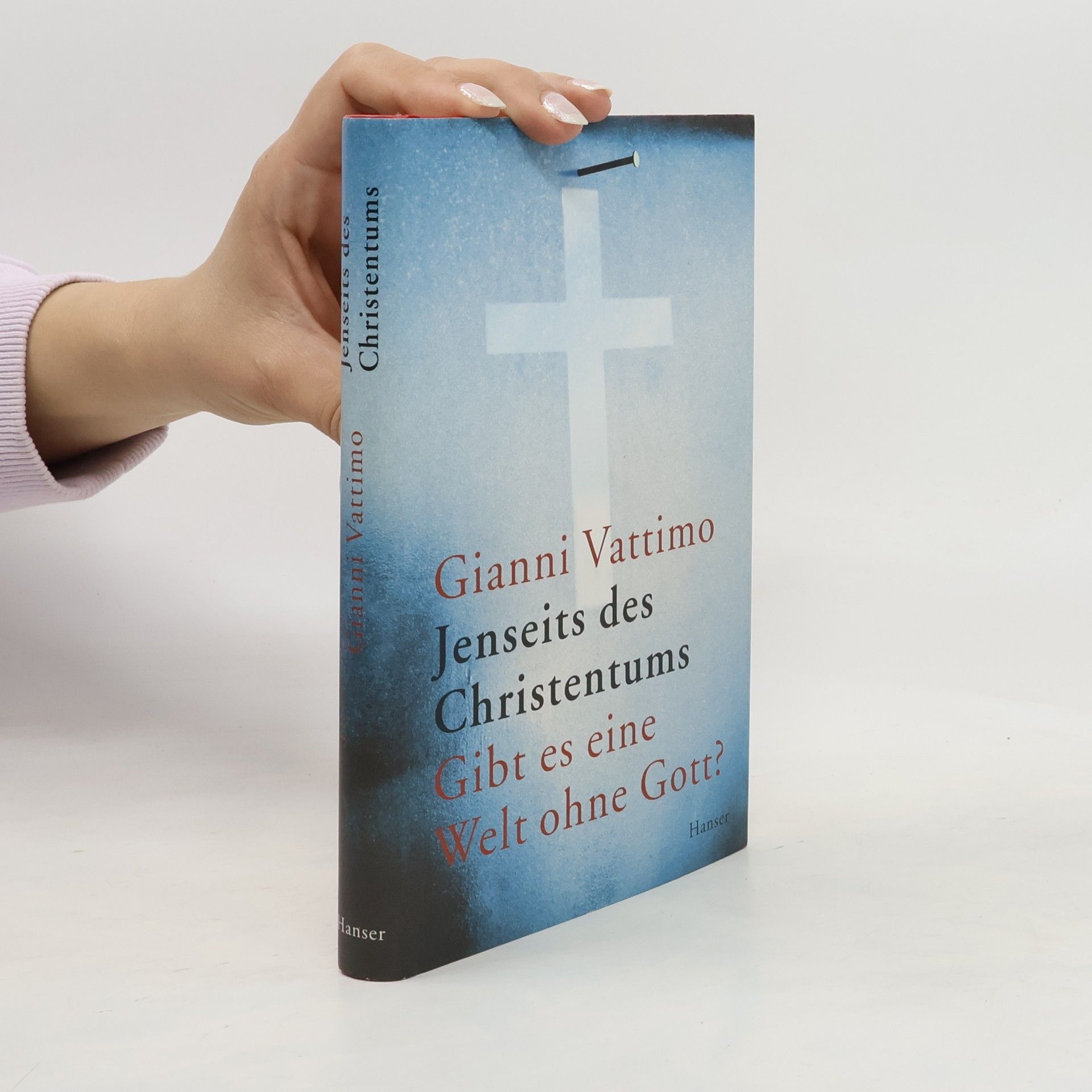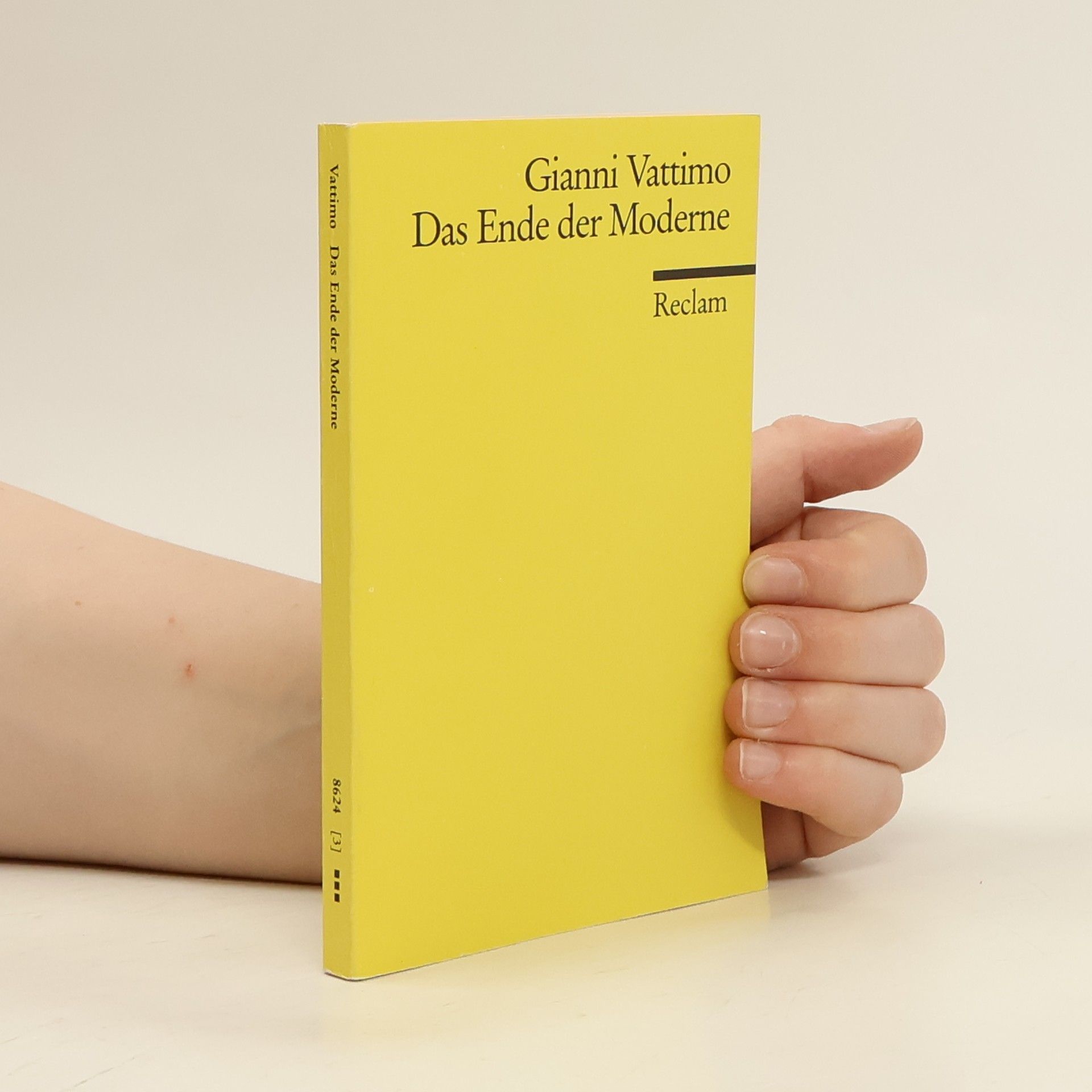En 1927, Etre et Temps (Sein und Zeit), le maître ouvrage de Heidegger, pose la question oubliée du sens de l'être. Evénement philosophique majeur, ce livre est la source de l'évolution du penseur qui, sur des registres différents, mais avec une attention toujours plus éveillée, ne cessera de reposer cette question. Le livre de Gianni Vattimo veut mériter son titre : il est une véritable introduction à cette œuvre incontournable. Partant des écrits antérieurs, il en dégage la problématique, en explique les concepts, en mesure les résultats et en trace les perspectives. L'évolution postérieure du penseur apparaît dès lors comme la tentative sans cesse reprise de répondre aux questions laissées en suspens. Deux moments essentiels (plus conceptuels que chronologiques) marquent cette évolution : l'un où l'être se donne à penser comme sa propre histoire, l'autre où il se manifeste comme événement de langage. L'exceptionnelle familiarité de Gianni Vattimo - né en 1936 à Turin où il occupe la chaire de philosophie théorique - avec la pensée de Martin Heidegger réussit le tour de force d'offrir une introduction simple et une interprétation forte : par-delà évolutions et retournements, il manifeste l'extraordinaire unité de cette œuvre fondamentale.
Gianni Vattimo Livres
Gianni Vattimo est un auteur et philosophe italien reconnu internationalement, célèbre pour sa contribution à la pensée postmoderne. Sa philosophie se caractérise par la "pensée faible" (pensiero debole), qui abandonne les certitudes fondamentales de la modernité et son emphase sur la vérité objective. Vattimo prône une conception de la réalité plus multiple, plus proche des arts et de leur pluralité inhérente. Son œuvre invite à reconsidérer les fondements de la connaissance et à embrasser une compréhension plus diversifiée.


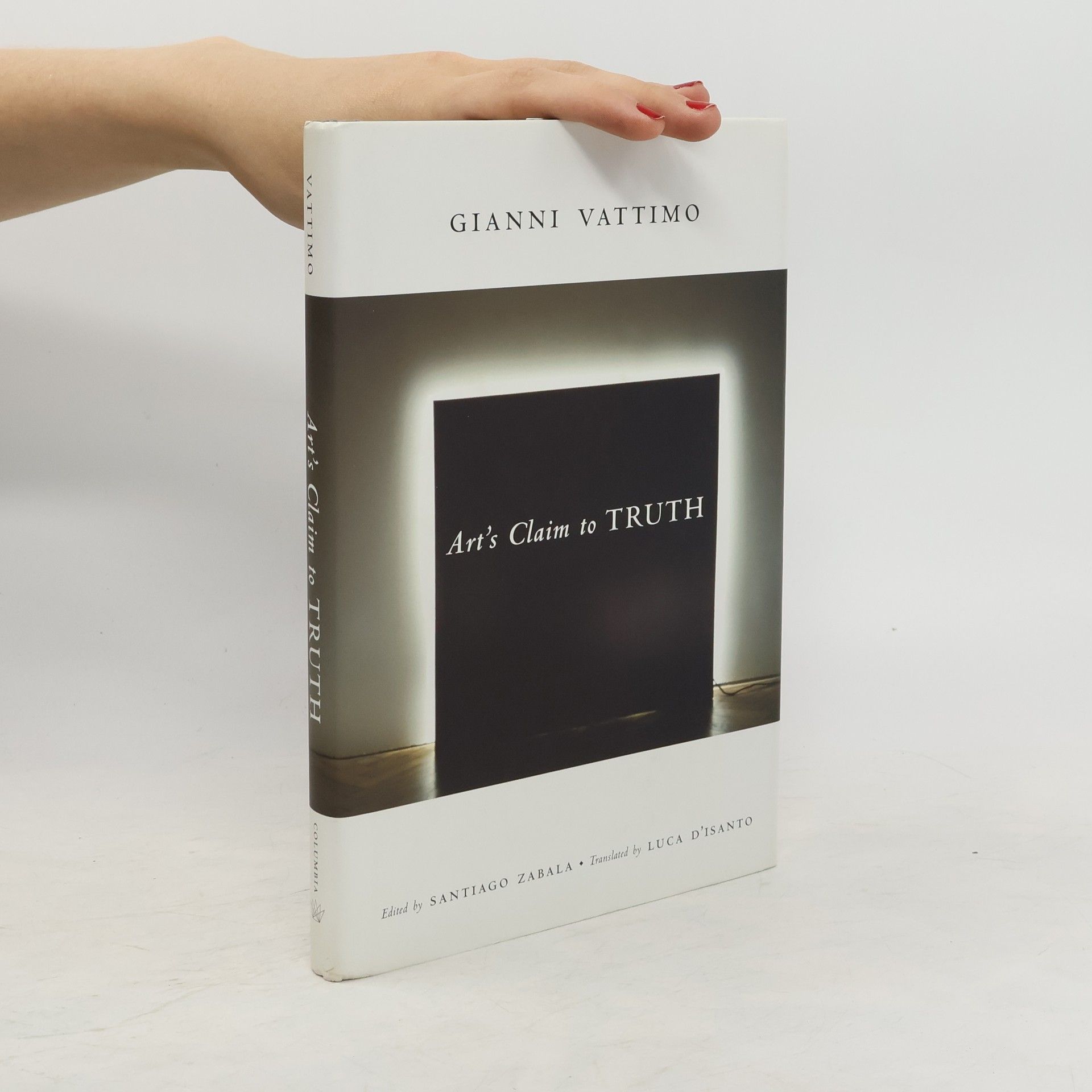


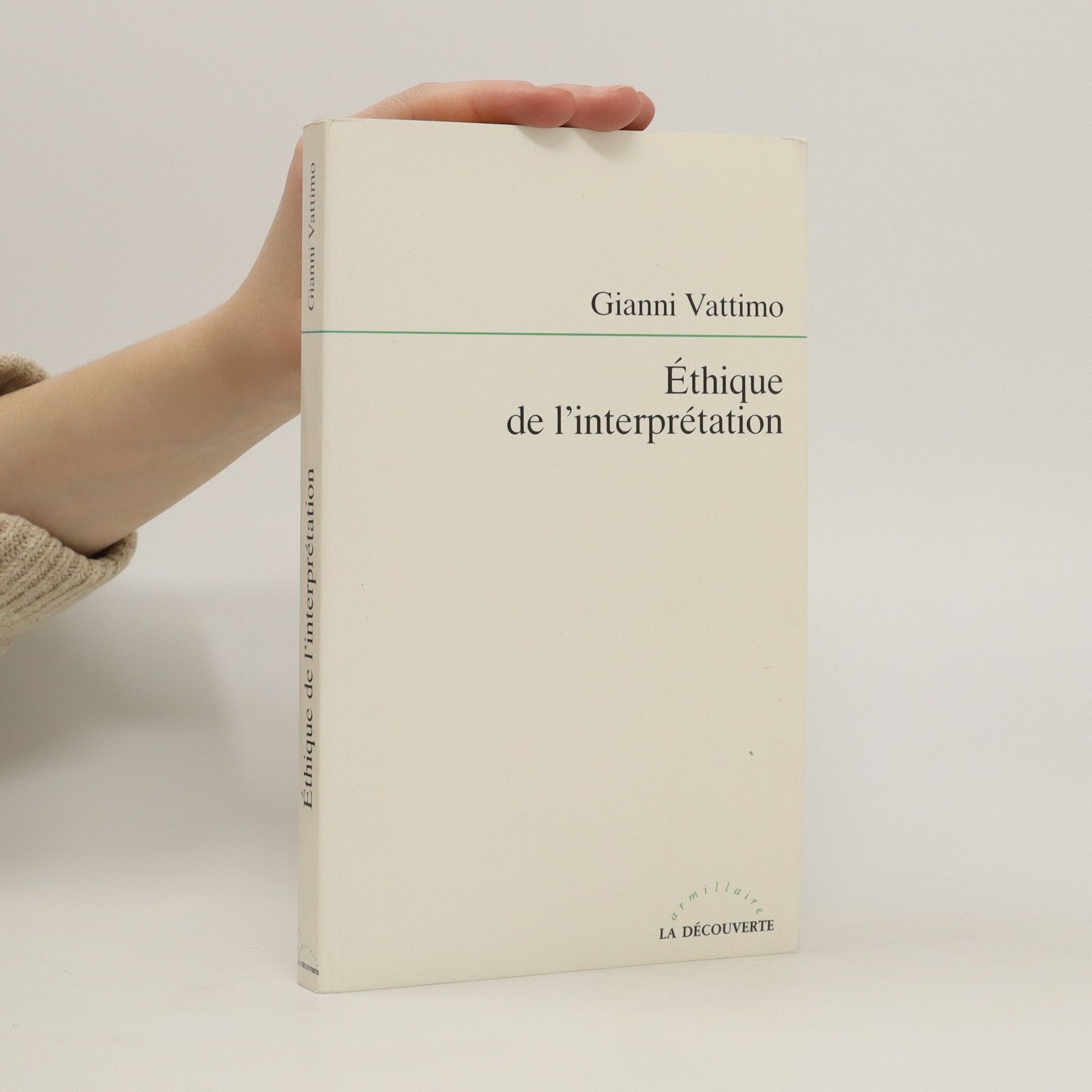
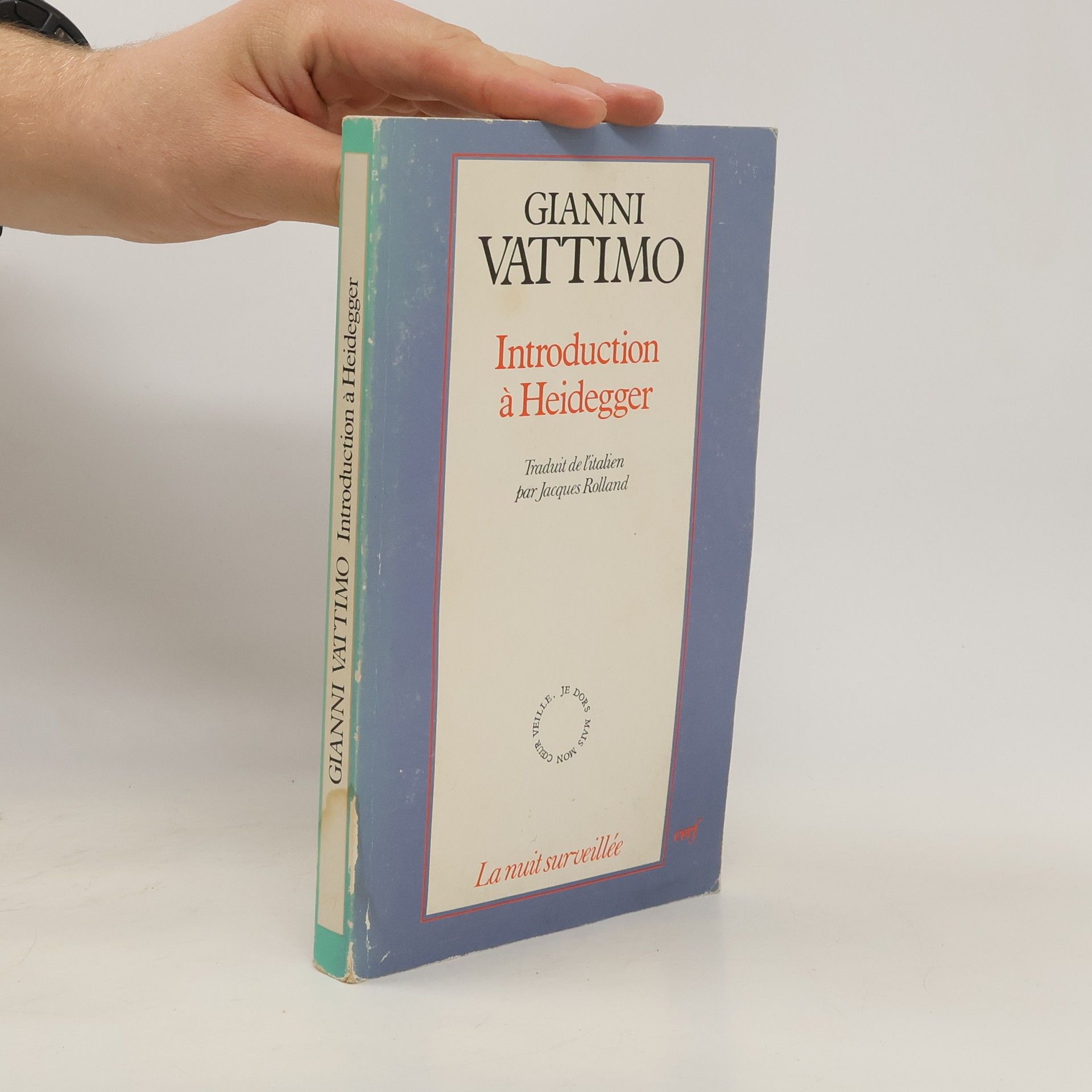
A l'origine technique de lecture des textes (religieux, littéraires, juridiques), l'herméneutique est devenue depuis le XIXe siècle philosophie générale et ontologie au sens propre du terme. Comprenant l'existence humaine dans sa relation avec le monde comme interprétation, elle correspond à une époque où l'être ne se présente plus comme structure stable et fondement absolu, mais s'annonce comme événement qui signifie dans le langage, à travers des messages qui sont toujours à interpréter. Comme telle, l'herméneutique peut également conduire vers une éthique. Pour autant, elle n'a pas à chercher à restaurer illusoirement une position transcendantale. Accueillant l'être dans sa finitude et son historicité, elle se fait écoute et méditation des valeurs, des figures de l'expérience, des formes symboliques qui y résonnent. Dans cette écoute attentive, elle peut puiser des critères de discrimination et de choix, des orientations pour l'action et, en ce sens, faire droit aux exigences d'universalité de l'éthique traditionnelle. C'est en radicalisant, contre toute visée restauratrice mais sans s'abandonner à un simple relativisme, les caractères " nihilistes " de l'ontologie herméneutique que ce livre met au jour les possibilités éthiques qu'elle recèle.
The book presents a novel interpretation of Nietzsche and Heidegger, exploring their philosophical contributions and how they influenced Vattimo's idea of weak thought. It delves into the complexities of their ideas, highlighting the transition from traditional metaphysics to a more fluid understanding of truth and existence. By examining the interplay between these thinkers, the work offers insights into contemporary philosophical discourse and the evolution of thought in the modern era.
Hermeneutic Communism
- 264pages
- 10 heures de lecture
Separating communism from its metaphysical foundations, which include an abiding faith in the immutable laws of history and an almost holy conception of the proletariat, the authors recast Marx's theories at a time when capitalism's metaphysical moorings are buckling
Art’s Claim to Truth
- 216pages
- 8 heures de lecture
First collected in Italy in 1985, Art's Claim to Truth is considered by many philosophers to be one of Gianni Vattimo's most important works. Newly revised for English readers, the book begins with a challenge to Plato, Aristotle, Kant, and Hegel, who viewed art as a metaphysical aspect of reality rather than a futuristic anticipation of it. Following Martin Heidegger's interpretation of the history of philosophy, Vattimo outlines the existential ontological conditions of aesthetics, paying particular attention to the works of Kandinsky, which reaffirm the ontological implications of art.Vattimo then builds on Hans-Georg Gadamer's theory of aesthetics and provides an alternative to a rationalistic-positivistic criticism of art. This is the heart of Vattimo's argument, and with it he demonstrates how hermeneutical philosophy reaffirms art's ontological status and makes clear the importance of hermeneutics for aesthetic studies. In the book's final section, Vattimo articulates the consequences of reclaiming the ontological status of aesthetics without its metaphysical implications, holding Aristotle's concept of beauty responsible for the dissolution of metaphysics itself. In its direct engagement with the works of Gadamer, Heidegger, and Luigi Pareyson, Art's Claim to Truth offers a better understanding of the work of Vattimo and a deeper knowledge of ontology, hermeneutics, and the philosophical examination of truth.
It has long been assumed that the more modern we become, the less religious we will be. Yet a recent resurrection in faith has challenged the certainty of this belief. In these original essays and interviews, leading hermeneutical philosophers and postmodern theorists John D. Caputo and Gianni Vattimo engage with each other's past and present work on the subject and reflect on our transition from secularism to postsecularism.As two of the figures who have contributed the most to the theoretical reflections on the contemporary philosophical turn to religion, Caputo and Vattimo explore the changes, distortions, and reforms that are a part of our postmodern faith and the forces shaping the religious imagination today. Incisively and imaginatively connecting their argument to issues ranging from terrorism to fanaticism and from politics to media and culture, these thinkers continue to reinvent the field of hermeneutic philosophy with wit, grace, and passion.
Being and Its Surroundings
- 264pages
- 10 heures de lecture
Gianni Vattimo, a leading contemporary philosopher known for his concept of weak thought, challenges the traditional Western view of Being as an absolute and unchanging reality. Through a series of essays, he examines both theoretical and practical implications of this rejection, navigating the complexities of Being without aiming for a systematic or definitive analysis. This exploration invites readers to reconsider foundational philosophical concepts in a more fluid and dynamic context.
Der Philosoph Gianni Vattimo diskutiert die Idee eines postmodernen Gottes und plädiert für eine neue Form des Christentums, die sich von Dogmen befreit hat, als Antwort auf Nietzsches Aussage, dass Gott tot ist.
Das Ende der Moderne
- 208pages
- 8 heures de lecture
Die „Wiederkehr Gottes“ scheint die Kultur und das Denken der Gegenwart in besonderer Weise zu charakterisieren. Doch was kann heute Sinn der religiösen Erfahrung sein? Gianni Vattimo, einer der prominentesten postmodernen Philosophen, bekannt geworden durch seine Konzeption des „schwachen Denkens“, gibt darauf nicht nur eine philosophische, sondern auch eine sehr persönliche Antwort. Während für ihn die Menschwerdung Christi die Säkularisierung des göttlichen Prinzips und somit die Befreiung von Absolutheitsansprüchen jeglicher Art bedeutet, rückt er das Gebot der (Nächsten-)Liebe ins Zentrum seiner Betrachtung. Er tut dies jedoch nicht naiv und im Sinne kirchlichen Dogmas, sondern auf sanft-anarchische und ironisch-de(kon)struktive Weise.
